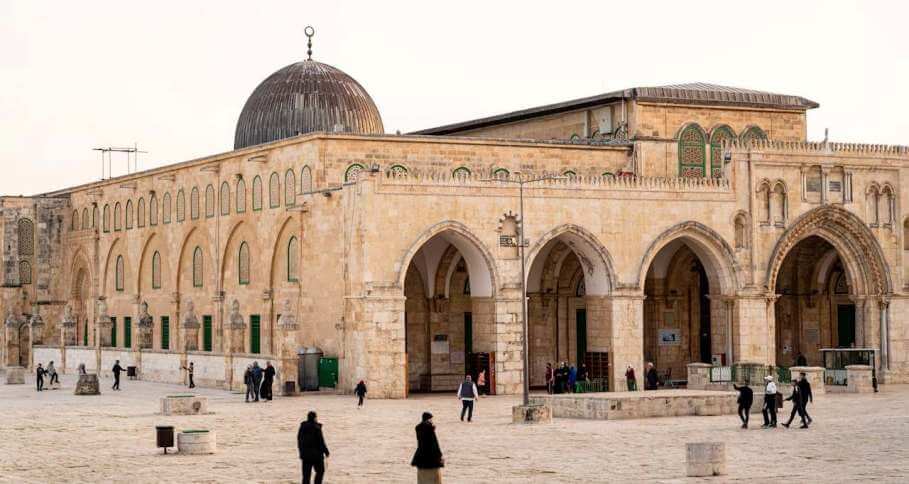Who Will Be Hazrat Mahdi: Unveiling the Divine Leader and His Guidance
Content sourced from DAJJAL KAUN KAHAN KAB, retrieved from Archive.org. | Published on

Throughout history, humanity has longed for guidance in moments of despair, for a light to pierce the darkness, and for a leader to rise who embodies justice, wisdom, and compassion. For Muslims, this hope is intimately connected with the figure of Hazrat Mahdi, whose arrival is both a promise and a profound reminder of divine mercy.
From the lineage of Hazrat Hasan Razi Allahu Ta'ala Anhu, Hazrat Mahdi will be a man born into this world, unaware of the extraordinary destiny awaiting him. His name will echo the nobility of Muhammad or Ahmad, linking him to the revered names of the Prophet Muhammad (peace and blessings be upon him), and his father's name will be Abdullah, grounding him in a lineage of piety and devotion. Some scholars suggest his mother's name may be Aamina, further evoking the sanctity of the Prophet's own heritage. Yet, it is not these names alone that define him, for Mahdi is not a name but an agnomen, meaning "the guided one."
The Guided One and His Mission
To be guided is to walk a path illuminated by divine wisdom, and Hazrat Mahdi will embody this in its fullest sense. His qualities will not be ordinary; they will be forged in the crucible of Allah's will, uniquely equipping him to lead the Muslim Ummah to heights of success unimaginable in centuries past. These triumphs will not arise from force or ambition but from his inherent qualities of justice, humility, and reliance on Allah. It is said that he will achieve in a few short years what countless sacrifices across generations could not—a unifying vision for a global Islamic caliphate, rooted in justice and mercy.
Yet, Hazrat Mahdi will not seek leadership. On the contrary, he will shy away from it, deeply aware of the immense weight of such responsibility. This reluctance is not a sign of weakness but of profound humility and understanding of the divine trust bestowed upon him.
The Reluctant Leader
The narrative of his emergence is as remarkable as his mission. When the Muslim Ummah faces unprecedented oppression and the weight of its dire condition becomes unbearable, the world will turn to him. However, Hazrat Mahdi will never claim to be the guided one. Instead, his recognition will come from the collective discernment of renowned Islamic scholars and their followers, who will search for him in Mecca. Even when they find him and address him by name, asking, "Are you the son of so-and-so?" his response will be humble: "I am Ansari (one who helps the faith)."
This humility will drive him to retreat from the responsibility of leadership. Moving between Mecca and Medina thrice in secret, he will avoid the role until the scholars find him near the Kaaba, rubbing his face against its walls and weeping over the plight of the Ummah. It is here, amidst his tears and supplications, that the scholars will plead with him to accept their allegiance (Bai'at). They will remind him of the desperation and suffering of the Muslim world, leaving him no choice but to take on the mantle of leadership.

In a moment etched in history, Hazrat Mahdi will accept Bai'at between the Maqam-e-Ibrahim and Hajr-e-Aswad, embracing the divine role that he had long resisted.
A Simple Pious Man, Transformed
What is most profound about Hazrat Mahdi is his ordinariness. Until the appointed time, he will live as any devout Muslim man, unremarkable in his outward existence. It is Allah who will awaken him to his destiny, instilling within him, in a single night, the qualities necessary for his monumental mission. This transformation—both internal and external—is a testament to Allah’s omnipotence and wisdom. It underscores a truth that no one can claim or manufacture this role; Hazrat Mahdi is chosen and guided by Allah alone.
Caution Against False Claims
The grandeur of Hazrat Mahdi's mission—to confront oppressors, to uplift the downtrodden, and to establish a just caliphate—is not something any sane individual would seek for themselves. Its challenges and burdens are so immense that only one divinely guided could bear them. Hence, any individual who claims to be the Mahdi is immediately suspect. As believers, we must exercise caution, ensuring that we do not fall prey to impostors who exploit the Ummah's yearning for salvation.
A Call to Reflection
The story of Hazrat Mahdi is not just a narrative of hope but also a call to self-reflection. While we await his emergence, it is incumbent upon each of us to strive for the qualities he embodies: humility, justice, and devotion to Allah. By strengthening our faith and fostering unity within the Ummah, we can prepare ourselves for the day when the guided one rises among us.
Hazrat Mahdi’s arrival is a promise, but the readiness of the Ummah to embrace his leadership is a responsibility. Let us reflect deeply on our role in this divine plan, for the light of guidance often shines brightest when the hearts of believers are prepared to receive it.